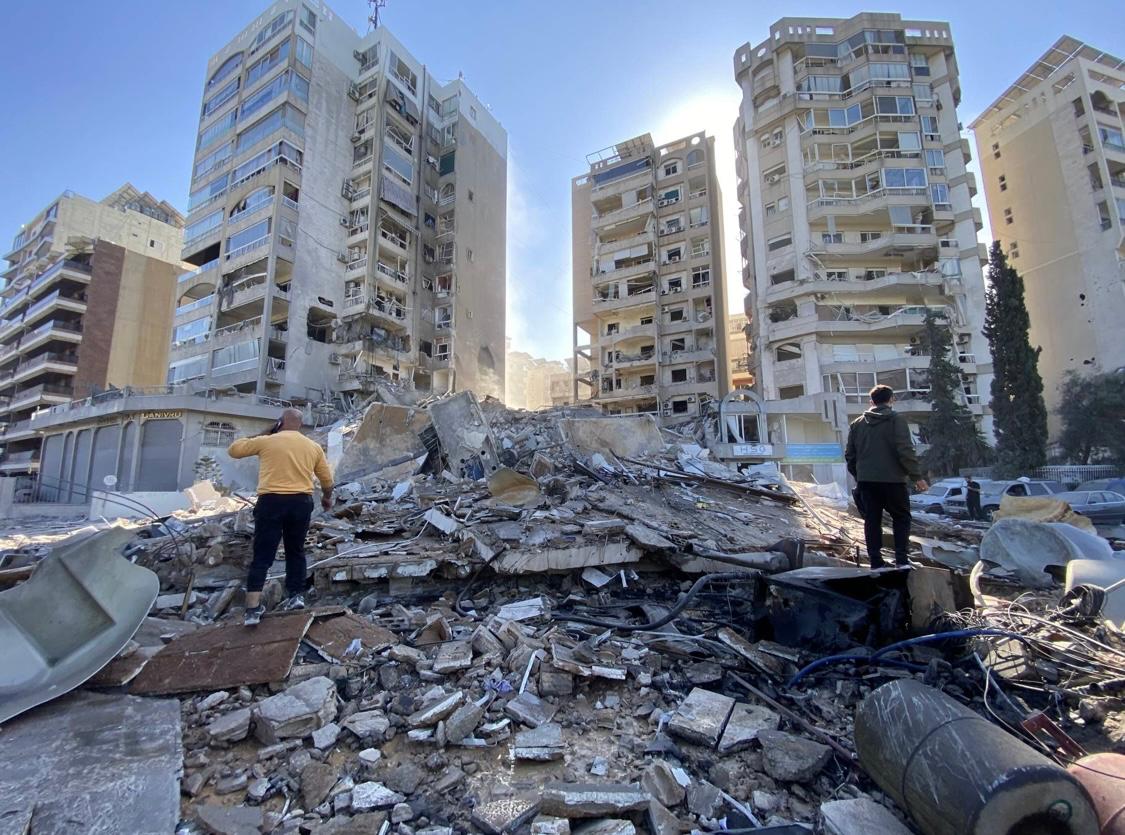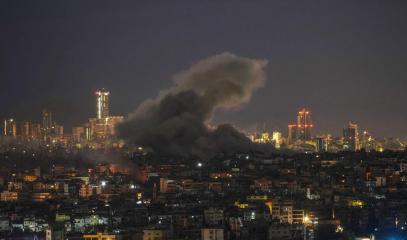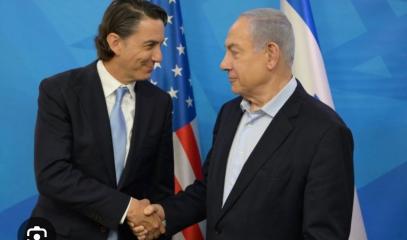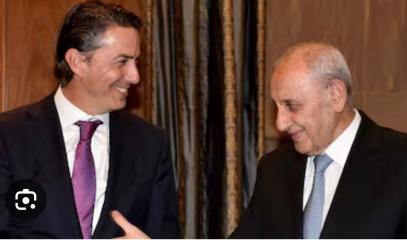Israel and Hezbollah close to a truce, but the 'northern front' remains hot
Backed by President Biden, the US-brokered ceasefire plan between Israel and Hezbollah is awaiting the green light from the Netanyahu government. The deal would see Hezbollah's Al-Radwan force pull back north of the Litani and Israel's total exit from Lebanese territory, followed by the return of displaced populations and a five-member commission to supervise the process.
Beirut (AsiaNews) – “Nothing is final until everything is final,” this according to the US State Department and the White House, as a harbinger of a possible ceasefire in Lebanon between Hezbollah and the Jewish State.
US President Joe Biden has pushed hard for a truce. While it might come into force at any time, it has been preceded by a surge of iron and fire in the past few days.
The goal is to end more than two months of aerial bombardments, missile exchanges, and ground fighting that have left more than 1,770 people dead and about 11,000 wounded in Lebanon, as well as incalculable damage to homes and infrastructure, including hospitals. Added to this is the tragic displacement of more than a million Lebanese from their homes.
If an agreement is reached, it will involve the withdrawal of Hezbollah's Al-Radwan force north of the Litani River, and a total withdrawal of Israel from Lebanese territory, as well as the return of displaced populations on both sides of the border.
Meanwhile, Israel continues to issue bombing warnings to residents of the capital's southern suburbs.
The plan is expected to be examined and possibly approved today by Israel’s war cabinet; however, Prime Minister Benjamin Netanyahu has yet to convince his Defence Minister, Israel Katz, to go along with it. To help him, Washington has dispatched Daniel Shapiro, Deputy Secretary of Defence and former ambassador to Israel.
The prime minister must also convince Itamar Ben Gvir, his Minister of National Security. The latter believes that a ceasefire would be "a big mistake" denying Israel “a unique opportunity” to kick Hezbollah out of the game. However, Ben Gvir has not threatened to resign if a ceasefire is adopted, which is a good sign for Netanyahu, and especially for peace.
In Beirut, indirect signals suggest that the pro-Iranian Shia movement "has unreservedly accepted all the provisions of UN Resolution 1701," which ended the 2006 conflict. But again, as they say, "the devil is in the details."
Lebanese lawmaker Elias Bou Saab, who is close to the negotiations led by President Biden's US envoy, Amos Hochstein, said that "there is no clause in 1701 that gives Israel the right to interfere militarily or otherwise in Lebanon, if the resolution is not respected".
This is the point on which the ceasefire proposal could stumble, according to all sources concerned.
Israel will argue that 1701 includes its right to intervene militarily if the resolution is violated. This is clearly a breach of Lebanese sovereignty, something rejected by the Lebanese.
In this regard, the possibility of a "secret" clause between the United States and Israel, on the sidelines of the ceasefire agreement, might be in the cards requiring Washington's discretionary okay before any possible military initiative by Israel. Should the two allies strike a bilateral agreement, this "right" would not have the force under international law.
The ceasefire and the implementation of Resolution 1701 provide for the total withdrawal of Hezbollah fighters and their arsenal north of the Litani River, the dismantling of their fortifications and weapons depots, the total withdrawal of Israeli troops, the return of populations forced to flee on condition that they not be armed, the deployment of the Lebanese army, with several thousand new troops, and UNIFIL, in the evacuated regions.
These measures would be implemented over a 60-day trial period, at the end of which, technically, the cessation of hostilities would be known as a ceasefire, supervised by a commission of five members: Lebanon, Israel, UNIFIL, France, and the United States.
The commission would be chaired by an American officer from the United States Central Command (Centcom), a unit whose primary objective is the deterrence of Iran. Even in this case, however, the consensus could crack.
A positive outcome of the talks and a long-awaited ceasefire therefore hang on the good faith of the parties to the conflict.
In exchange for the withdrawal north of the Litani, Hezbollah and Lebanon are demanding that Israeli planes stop violating Lebanese airspace. According to the Lebanese military, UNIFIL has recorded 36,000 violations of the status quo since 2006.
Among Beirut’s political circles, there is agreement that Resolution 1701 "has been very badly applied" by everyone, including the international force itself, and it is hoped that from now on it will be applied more seriously. Provided that the long-awaited truce is reached!
17/08/2006










.png)










